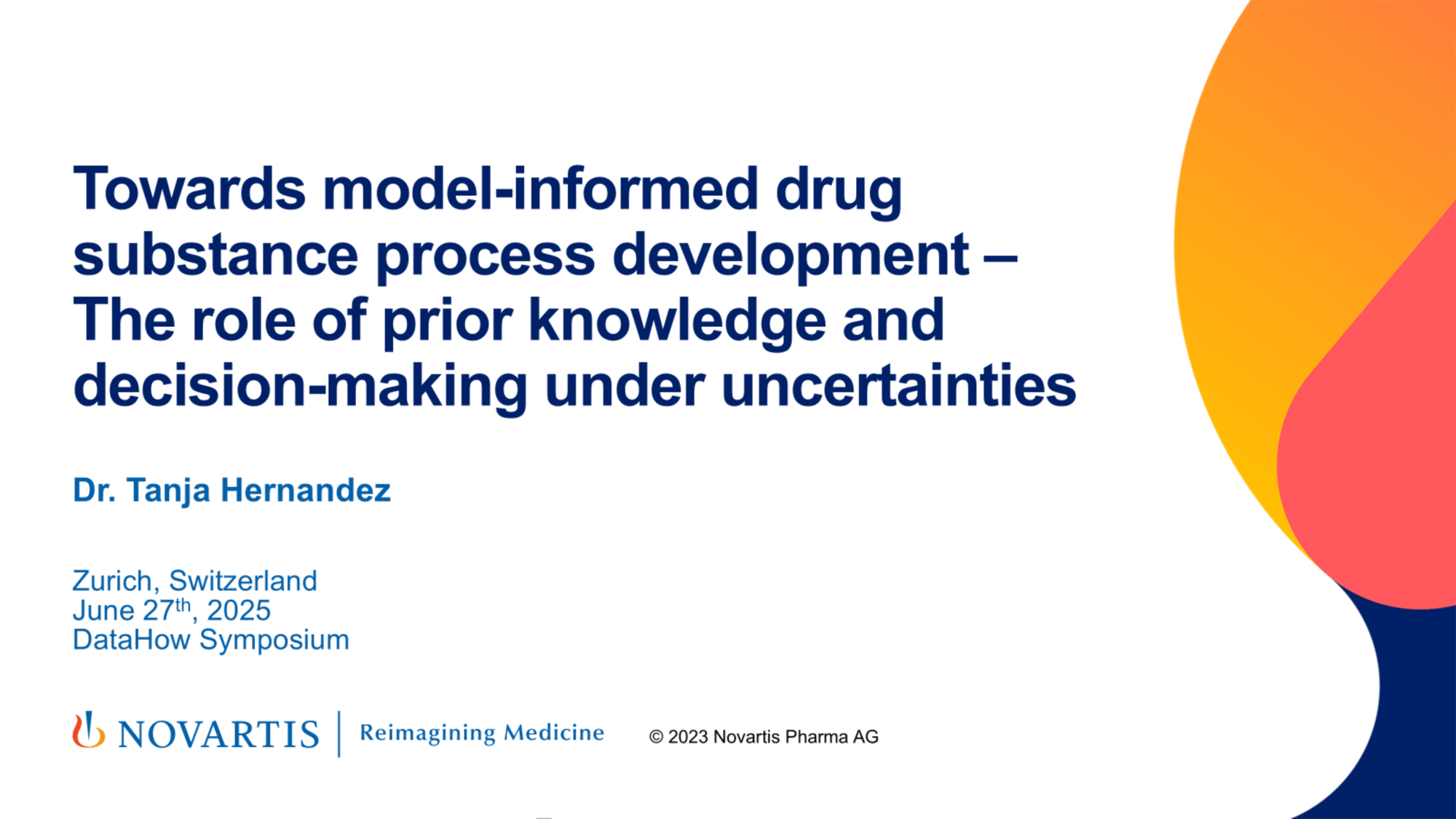Symposium 2025 Recordings
Towards model-informed drug substance process development – The role of prior knowledge and decision-making under uncertainties
Dr. Tanja Hernandez
Abstract
The development of drug substance processes for biopharmaceutical manufacturing presents numerous challenges. These include the complexity of the process, inherent process variability, and the fact that it comprises multiple process steps or units, each subject to varying sources of uncertainties and variabilities. The development of these individual steps is both, time-consuming and costly. The utilization of process models has garnered increasing attention and demonstrated benefits in experimental planning (e.g., for optimization purposes), characterizing a process unit (including the definition of risk and process parameter ranges), as well as in monitoring and controlling these units. Nonetheless, challenges persist in the selection of appropriate model types, the incorporation of prior knowledge, the assessment of model credibility, and decision-making under uncertainty.
We address these by showcasing specific use cases from upstream development (expansion train and production stage) which model type was selected, how we include prior knowledge, how we address uncertainties and derive risk. The applied methods include mechanistic and hybrid modeling as well as Bayesian methods.
These examples aim to enhance the advanced usage of process models in routine process development activities to increase process understanding simplify root-cause investigations, reduce experimental burden and enable optimal, robust processes, ultimately with the objective to save time and resources in the early as well as late phases of process development.

Digital Bioprocessing
From Innovation to Impact